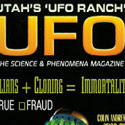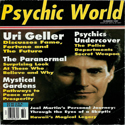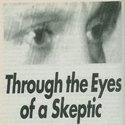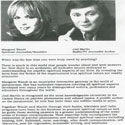

You will need to have Adobe Acrobat Reader installed to view the UFO articles. Download it from here.
Articles
Dreams and disaster happening at the same time.

Dr. Antonio de Nicolas' brother has just been elected the 30th Superior General of the Society of Jesus! History is made! Click here.
New superior urges Jesuits to strengthen service to poor. Click Here
Province Express - Father Adolfo Nicol�s. Click Here
- Is a New Eugenics Afoot? by Garland E. Allen
- The 1929 Arab Terror Attack: When Hebron Became Occupied Territory by Sammy Benoit
- "Saturn enters Libra"
- 'I am sorry,' Cardinal Mahony says amid new priest abuse details
- 04/07/08 We are all African
- 04/23/08 Moody's Blues
- 05/06/08 Lunacy and Freedom
- 05/10/08 It's not easy being Green, or even truthful it would seem
- 05/21/08 Shareholder Value
- 05/26/08 Senator Clinton, Fear, and Assassination
- 06/02/08 The Lesson Derived From Derivatives
- 06/12/08 The Price of Ice Cream
- 06/23/08 The Market
- 06/25/08 Getting Hit By A Bus
- 07/11/08 Being Right
- 07/18/08 Einstein
- 07/18/08 Karma
- 07/21/08 Ecology, Security and Economics
- 08/01/08 Who We Have Been Waiting For
- 08/11/08 From The Head To The Heart
- 08/20/08 Incarceration
- 08/28/08 Frick and Frack
- 09/10/08 Worrying
- 09/17/08 Taxpayer Bailout
- 10/16/08 Deleveraging
- 11/23/08 Too Big to Survive
- 11/24/08 Getting Hit By a Bus
- 2014: Sag New Moon --Change that perspective-NOW!
- 2024 Capricorn New Moon: Let's Get Your Cap On!
- 2nd Aquarius New Moon: 2015
- ACE OF CUPS
- ACE OF PENTACLES
- ACE-OF-SWORDS
- ACE-OF-WANDS
- After Lehman
- Amazing New Video -- The 2012 Enigma! by David Wilcock
- An Extraordinary Astrological Recapitulation by Brian McNaughton
- And now it is the Second Cancer New Moon!
- Aqaurius New Moon 2011--The New Quilting BEE!
- Aquarius New Moon 2010! It is a strange trip
- Aquarius New Moon 2012!
- Aquarius New Moon 2014 - You LikeMind me.
- Aquarius New Moon 2015 - The Zero One
- Aquarius New Moon 2016: Get Your Tribe On
- Aquarius New Moon 2017: Out of the chaos we find our Peeps.
- aquarius New Moon 2017: Out of the chaos we find our Peeps.
- Aquarius New Moon 2017: Out of The Chaos We Find our Peeps!!
- Aquarius New Moon 2018: Friends & Communities
- Aquarius New Moon 2019: No Time or Place for Emotions
- Aquarius New Moon 2020: Expect the Unexpected
- Aquarius New Moon 2021 Your Place in the Community
- Aquarius New Moon 2022: Loneliness or Circles? Your choice!
- Aquarius New Moon 2023: Wear Your Weird
- Aquarius New Moon 2024: Pluto is Getting Our Attention
- Aquarius New Moon 2025
- Aquarius New Moon--Unique Solutions if you are willing
- ARCHANGEL MICAHEL: SOUL'S JOURNEY
- ARCHANGEL MICHAEL: FAMILY AND FRIENDS
- Archangel Michael: INTENTIONS
- ARCHANGEL URIEL: STRESS
- Archangels: Stress
- Aries New Moon #1 March 2023
- Aries New Moon #2 - April 19th 2023 PDT
- Aries New Moon - It will be a great Treasure Map time!
- Aries New Moon 2009---IT’S A BIG ONE!
- Aries New Moon 2010--Let's get this party started!
- Aries New Moon 2012: You rule!
- Aries New Moon 2014 Get out of the way! Your Life is Coming
- Aries New Moon 2016: Light this rocket!
- Aries New Moon 2017
- Aries New Moon 2018: What Are Your Instincts Telling You?
- Aries New Moon 2019: Patience. Yes. That Word.
- Aries New Moon 2020: Survival
- Aries New Moon 2021: Heart Driven Changes
- Aries New Moon 2022: Finding Self Now!
- Aries New Moon 2024 Total Solar Eclipse - Wow.
- Aries New Moon 2025: A New Beginning for All
- Aries New Moon! (2008) by Tracy Cook
- Aries New Moon, 2011- Yes it is a big one!
- Article by Jock Brocas
- Back on Uncle Sam's Plantation
- Being Frugal and Benefiting
- Biomass-Eating Military Robot Is a Vegetarian, Company Says
- Bob Dylan: Like a Complete Unknown by Ron Radosh
- Books mentioned in Brian Hurst's broadcasts
- Britain Hired Astrologer to Fight Hitler
- Buddhism and the End of Economic Growth by John Stanley & David Loy
- Cancer Eclipse & New Moon 2019: Your Emotions Will Guide You
- Cancer New Moon & The Grand Cross
- Cancer New Moon --The Great Healing by Tracy Cook
- Cancer New Moon 2010---Your feelings have answers
- Cancer New Moon 2012 - "It's the flow, Baby!"
- Cancer New Moon 2014: REFRESH!
- Cancer New Moon 2016: Let It Flow
- Cancer New Moon 2017: Are your emotions flowing? Good.
- Cancer New Moon 2023: Ride the Rapids
- Cancer New Moon 2024: Emotions, Feelings and Needs- Oh, My!
- Cancer New Moon Solar Eclipse June 20, 2020
- Cancer New Moon--The first of two (2009)
- Cancer New Moon-Ready, Set, Emote! July, 14th 2007 by Tracy Cook
- Cancer New Moon: 2013
- Cancer New Moon: 2022 - Emotions Guide Us To Our Heart
- Cancer New Moon: Don't make me go find your roots...you do it!
- Cancer New Moon: Feelings. Emotions. Passion. 2021
- Cancer Solar Eclipse 2018
- Capricorn 2010 NEW MOON--Taking Care of Business!
- Capricorn 2011-Aim your ambition-NOW
- Capricorn New Moon - Get Serious!
- Capricorn New Moon 2011 -Be the authority and move up!
- Capricorn New Moon 2013: Pragmatic and no excuses
- Capricorn New Moon 2014
- Capricorn NEW MOON 2016 ...Get Real!
- Capricorn New Moon 2018
- Capricorn New Moon 2019 - Pragmatism Pragmatism Pragmatism
- Capricorn New Moon 2019: Focused and Disciplined
- Capricorn New Moon 2019: Focused and Disciplined
- Capricorn New Moon 2021. Climb Like a Goat
- Capricorn New Moon 2022: Climb Heights
- Capricorn New Moon 2025 Ambition for You
- Capricorn New Moon Dec 2022: CEO of Values
- Capricorn New Moon: Slow and sensible is a-okay.
- Children Skipping Childhood
- Clean your Slate Capricorn New Moon! by Tracy Cook
- Compliments Do You Get Enough Of Them?
- David Kaiser from MIT, not David Kaiser from the Naval War College
- Detach From Rescuing
- Did Yale prostitute itself for oil money? by Ethel C. Fenig
- Do I Remember Differently Than Another Does?
- Do you feel good about where you live? by Jill Saint James
- Dreaming on Pisces New Moon by Tracy Cook
- ECSTASY
- Energetic Health Food By Eva Sanchez,N.D.
- Face The Music
- Fox Blowviator Bill O'Reilly wants you to hate him
- GEMINI NEW MOON 2011 –“Can someone turn on the air, please?”
- Gemini Eclipse New Moon 2021: Fact versus Fiction and Pivot !
- Gemini New Moon (2012)- Second time's the charm
- Gemini New Moon 2009---The Fast and Furious Talker
- Gemini New Moon 2010: A Tornado among us!
- Gemini New Moon 2013
- Gemini New Moon 2014: The power of light feet
- Gemini New Moon 2014: The power of light feet
- Gemini New Moon 2018 - Thoughts!
- Gemini New Moon 2019: Mix it up & Adapt
- Gemini New Moon 2020: Reboot Your Inner Computer
- Gemini New Moon 2022: Process the Information
- Gemini New Moon 2023: Fuzzy Data But Still Informs
- Gemini New Moon 2024: Cha-Cha-Cha-ing
- Gemini New Moon by Tracy Cook
- Gemini New Moon-- Reach out! Mix it Up!
- Gemini New Moon--the first round- 2012
- Gemini New Moon. Mental Exercises 2015
- Gemini New Moon. Mental Exercises 2015
- Gemini New Moon: Question and Shift
- Gemini- New Moon 2008-- Ready to Connect! by Tracy Cook
- Get out of the way---LEO NEW MOON is HERE!
- Get your Viking on--Aries New Moon 2013
- Getting the Scoop by Janet Donovan
- Glossary of Number Values
- God + Faith by Margaret Wendt
- God Heard The Need
- Headaches are Telling You Something by Eva Sanchez, N.D.
- Heart Ethics by Way of Introduction by Dr. Antonio T. de Nicolas, PHD
- Hi Ho Silver!!
- History Unfolding by David Kaiser
- How American corporate philanthropies launched a national campaign of ethnic cleansing in the United States, helped found and fund the Nazi eugenics of Hitler and Mengele — and then created the modern movement of "human genetics." by Edwin Black
- How to sit with a medium
- I Forgot To Accept The Things I Can Not Change
- I Want Your Help, I’m An Atheist
- In a generation or two, the US will ask itself: "Who lost Europe?"
- In fallout from crisis, rethinking risk and human judgment by Lynnley Browning
- Incredible information and facts about the paranormal and publishing
- Is A Shift Needed in Parenting Values?
- Is Your Community Antisocial?
- It is all a balancing act, Baby! Libra new moon 2008
- Jess Stearn
- JFK Junior - John Jr. by Sloan Bella
- Jon Bennett Ramsey by Sloan Bella
- Keeping a Tally Sheet
- Kurt Cobain - Celebrity Channel by Sloan Bella
- Learn about Boundaries
- Lemon for Lymph By Eva Sanchez N.D.
- LEO 2008 New Moon--Sunny side of the street by Tracy Cook
- Leo New Moon - Round two & Solar Eclipse 2017
- Leo New Moon - The First One! 2017
- Leo New Moon - The First One! 2017
- Leo New Moon - To be bold or not to be bold? That is the question
- Leo New Moon 2011--Your passion tells you so
- Leo New Moon 2012--The Heart Wants To Thrive
- Leo New Moon 2013: Be Big. Be Very Big
- Leo New Moon 2015: Learn from the Lion!
- LEO NEW MOON 2016: Dare to find Joy & Strength
- Leo New Moon 2019: Be Special, dang it!
- Leo New Moon 2020: Put on Your Sloppy Cape
- Leo New Moon 2023 - 29 Days of Brave
- Leo New Moon 2024: Love, Strength and Courage
- Leo New Moon Eclipse 2018
- Leo New Moon: 2021 - Find Your Authentic Heart
- leo New Moon: 2021 - Find Your Authentic Heart
- Leo New Moon: 2022 - Be YOU.
- Leo's in the House..Roar! Sort of.. by Tracy Cook
- Libra New Moon (2007) by Tracy Cook
- Libra New Moon -How do you relate? Does it serve you?
- Libra New Moon 2009--The business of relating
- Libra New Moon 2012-
- Libra New Moon 2013 -- Balance That!
- Libra New Moon 2014: Let's really get our Libra on this time
- Libra New Moon 2015: Get your relationships straightened out
- Libra New Moon 2016: The Power of Negotiation
- Libra New Moon 2017: Not as light as you think
- Libra New Moon 2018: Power & Negotiations & Self Worth. Repeat.
- Libra New Moon 2019: Your Identity, My Identity & An Oxygen Mask
- Libra New Moon 2020: Bumpy. Power. Kindness. Repeat.
- Libra New Moon 2021: Where's your balance?
- Libra New Moon 2022 : How are your relating skills?
- Libra New Moon Eclipse 2023
- Libra New Moon Eclipse 2024: What's That Zagging?
- Look In My Eyes
- Love in the Land of Loneliness by Joseph Dispenza
- Marilyn Monroe - June 2004 - Celebrity Channel by Sloan Bella
- MAY GOD BLESS THIS AIRLINE CAPTAIN
- Me Controlling
- Meditation: The Making of Images By Antonio T. de Nicolas, PhD
- Mindy Sommers
- Mirror Mirror On The Wall
- My Global Warming Epiphany by Randall Hoven
- Narcissistic Behavior Is Increasing
- Neediness
- Nevins Rules by Julie Salamon
- New Moon in Aquarius 2013 Pull out your lightening rod-hits are coming
- New Moon in Virgo--Now you can fix your life
- New Moon Leo 2010--Wish upon a star--"Hey, that's me!"
- No One Mention The War!
- Pass The Buck
- Patience is a Virtue
- Pisces 2021 New Moon - All We Need is Love
- Pisces New Moon 2010--The LEAP of FAITH
- Pisces New Moon 2012: What is Dissolving?
- Pisces New Moon 2013 -Get in the flow
- Pisces New Moon 2014: Go for the Flow
- Pisces New Moon 2015
- Pisces New Moon 2016: Karma and Elevation
- Pisces New Moon 2017 -- The Big Release and Melt
- Pisces New Moon 2018: Intuition Speaks Are You Hearing It?
- Pisces New Moon 2019: Dazed and Confused --Thank You For It
- Pisces New Moon 2020: Time to Get Quiet
- Pisces New Moon 2022: Finding the Inner World
- Pisces New Moon 2023: Beep!
- Pisces New Moon 2024: Connecting to Bigger
- Pisces New Moon 2025: Unplug and Replenish
- Pisces New Moon---Mystics Apply
- Pisces New Moon--Dive or wash up on shore, it is your choice!
- Private Space Is Healing
- Psychic portraits of the Bangs Sisters
- Psychics, Mediums, and Rock N Roll
- Raymond Moody
- Re-wounding
- Re: Mars turns retrograde as Jupiter conjuncts Neptune on the Winter Solstice
- Re: Planetary Forecasting Methods for Traders
- Re: Saturn turns retrograde; Solar Eclipse; Mercury turns direct; Jupiter enters Pisces
- RESPOND TO RESPONSIBILTY-CAPRICORN NEW MOON 2008
- Responsibility Came From Being Told No
- Robert Monroe
- Sag New Moon 2010-- Ready, Aim---Change!
- Sag New Moon 2012 - A time to get real
- Sag New Moon 2021 Total Eclipse
- Sag New Moon 2023: Bits of Joy is still Joy
- Sag New Moon Total Eclipse 2020: The Truth is in The Mirror
- Sag New Moon---All Vision without the Hype!
- Sagittarius New Moon 2009--Ready, Aim, Adjust...Fire, Adjust, Aim, Ready..
- Sagittarius New Moon 2013 - Forward Ho!
- Sagittarius New Moon 2015: The Adventure!
- Sagittarius New Moon 2016: Get Wise Get Inspired
- Sagittarius New Moon 2017 - On Top of The Galactic Center
- Sagittarius New Moon 2018 - Get Inspired. Now!
- Sagittarius New Moon 2019: Hot & Cold Wisdom
- Sagittarius New Moon 2024: Finding The Way
- Sagittarius New Moon--Mother Knows Best
- Scorpio New Moon (2017) : Act Like a Plumber!!
- Scorpio New MOON 2009-Resources and Community--Where do I fit?
- Scorpio New Moon 2010-Jump in the water!
- Scorpio New moon 2012: Suit up and Commit
- Scorpio New Moon 2015
- Scorpio New Moon 2016: Release the death grip
- Scorpio New Moon 2018 - Rejuvenate!
- Scorpio New Moon 2019 - Shocked to Vulnerability
- Scorpio New Moon 2020: Dig Deep & Get Rid of Debris
- Scorpio New Moon 2023: Depth & Release
- Scorpio New Moon 2024: Tapping Power & Getting Unstuck
- Scorpio NEW MOON by Tracy Cook
- Scorpio New Moon Solar Eclipse SHED! SHED!SHED!
- Scorpio New Moon(2011)--DNA, Survival and ditching Garbage
- Scorpio New Moon: Get Your Plumbers Butt On!
- scorpio New Moon: Get your Plumbers Butt on!
- Scorpio New Moon: Solar Eclipse 2014
- scorpio New Moon: Solar Eclipse 2015
- Scorpio Solar Eclipse New Moon 2022: Release. Got it?
- Second Cancer New Moon 2020
- Sharia rejects all fundamental premises
- Speaking From Experience
- Speech by Lou Pritchett
- SURE RELATIONSHIPS BITE--BUT WE'RE ALL HUNGRY. Libra New Moon 2010
- Taurus New Moon 2008!
- Taurus New Moon 2010-----And so we begin.......
- Taurus New Moon 2011--Build upon it!
- TAURUS NEW MOON 2012 --What do you value?
- Taurus New Moon 2017: Practicality for a Personal Revolution
- Taurus New Moon 2018: Making Changes Bit by Bit
- Taurus New Moon 2019: Feel The Changes
- Taurus New Moon 2020: The rest of the year and being practical
- Taurus New Moon 2021. Slow down and find your values.
- Taurus New Moon 2022: Our Resources, our Love our Values!
- Taurus New Moon 2024: The Power of Slowing Down
- Taurus New Moon Eclipse: Yes you can make the changes!
- Taurus New Moon. Getting Practical ..Seriously, for real
- Taurus New Moon: May 19 The Glory of Practicality!
- Taurus New Moon: Take the short route between A&B
- Taurus to the RESCUE!
- TaurusNewMoon 2014--Building Good bit by bit
- The Alinskyite's Big, Fat Governance Failure by Kyle-Anne Shiver
- The collapse of the U.S. Dollar and Federal Reserve? by Ted Phillips
- The coming collapse of the U.S. Dollar and Federal Reserve?
- The Consoling Angel by Antonio de Nicolas
- THE EMPEROR
- THE EMPRESS
- THE FOOL- MAJOR ARCANA
- The Ghosts on Moaning Mountain
- THE HEIROPHANT
- THE HIGH PRIESTESS
- The Horrifying American Roots of Nazi Eugenics by Edwin Black
- THE MAGICIAN- MAJOR ARCANA
- The Most Important Astrological Chart for Your Financial Security
- The Nightmare of Rationing in Oregon by Jeff Emanuel
- The Price of Ice Cream by Bill Sharon
- The Promise of the Past by Betty J. Kovács, Ph.D.
- The Reincarnation of Edgar Cayce and His Soul Group? - You Decide.
- The Sea has changed---SCORPIO NEW MOON 2008
- The Shadow and Karma
- The Spiritual Candle
- The Thieves of Happiness
- There she blows!!! SAG NEW MOON is HERE! by Tracy Cook
- Thomas Edison's Paranormal Personality by Margaret Wendt
- Thomas J. Curry must Leave Santa Barbara
- Tick Tock Virgo New Moon Strikes the Clock....2008
- Time To Connect With Like Minds
- Too Much Of A Good Thing....Is It Really Wonderful?
- Treasure Mapping by Tracy Cook
- Verbal Abuse Hurts
- Virgo 2018 New Moon - A Hero's Journey
- Virgo 2019 New Moon - A Car Full of Nerves
- Virgo New Moon - Your daily life is YOU. How is it going?
- VIRGO NEW MOON --GET YOUR MICRO ON!
- Virgo New Moon 2011- Help & Work serve you!
- Virgo New Moon 2012: Sweating the Small Stuff
- Virgo New Moon 2013: A Big Opportunity
- Virgo New Moon 2016 - What's that stuff in your schedule?
- Virgo New Moon 2017: Skills Needed! Please Apply
- Virgo New Moon 2021: Daily efforts build your life
- Virgo New Moon 2022: Don't be a burnt out Roomba
- Virgo New Moon 2023: Keep Your Head Down & Do The Work
- Virgo New Moon by Tracy Cook
- Virgo New Moon--Details Rule
- Virgo New Moon: 2020 - Every choice is yours
- Virgo New Moon: 2024 - Control Your Future By Your Schedule
- Vowels by Jill Saint James
- What Does Cutting Back On Expenses Mean To You?
- What Is A Distraction?
- What To Do This Taurus New Moon by Tracy Cook
- Where have all of the leaders gone? by Lee Iacocca
- Who Has Time To Read?
- You Feel Their Pain
- You had me at Hello, Aquarius New Moon by Tracy Cook
- You Lose Out When You Judge a Book by Its Cover
- You Make The Choice I Don't Care
- ‘Transce-end’ the trance – Bring out your dead!
- Uri Geller
- Margaret and Joel
- Houdini
Letters Sent to Us from the Public
- The 1929 Arab Terror Attack: When Hebron Became Occupied Territory by Sammy Benoit
- Biomass-Eating Military Robot Is a Vegetarian, Company Says
- Bob Dylan: Like a Complete Unknown by Ron Radosh
- Buddhism and the End of Economic Growth by John Stanley & David Loy
- David Kaiser from MIT, not David Kaiser from the Naval War College
- Did Yale prostitute itself for oil money? by Ethel C. Fenig
- History Unfolding by David Kaiser
- My Global Warming Epiphany by Randall Hoven
- The Alinskyite's Big, Fat Governance Failure by Kyle-Anne Shiver
- The collapse of the U.S. Dollar and Federal Reserve? by Ted Phillips
- The Nightmare of Rationing in Oregon by Jeff Emanuel
- Where have all of the leaders gone? by Lee Iacocca
Articles by Joel Martin
- Through the Eyes of a Skeptic
- Question and Answers
- Who Believes in the Paranormal?
- Nancy Reagan
- Ghost Ship
- I'm gonna get you 'suckers'
- Margaret Wendt and Joel Martin's New Book
Articles by Margaret Wendt
Paper Media: click thumb (where applicable) for full size image/.pdf files

Margaret's Magazine 1
Margaret's Magazine 2
Margaret's Magazine 3
Margaret's Magazine 4
Margaret's Magazine 5

News Anchor's
UFO experience
My Favorite Martian
Article by M. Wendt
Robert Urich
Spirit Magazine
The Healers Magazine
Entertainment Tonight
Magazine for Cleveland
- News Anchor's UFO Experience by Margaret Wendt
- My Favorite Martian by Margaret Wendt
- Looking for Love by Margaret Wendt
- God + Faith by Margaret Wendt
- Thoms Edison's Paranormal Personality by Margaret Wendt
- Margaret and Joel
- Who was Hayim Solomon?
- Nevins Rules by Julie Salamon
- Psychic portraits of the Bangs Sisters
- Psychics, Mediums, and Rock N Roll
- The Ghosts on Moaning Mountain
- The Spiritual Candle
- Thomas Edison's Paranormal Personality by Margaret Wendt
- Margaret Wendt and Joel Martin's New Book
The Shadow and Karma
By Antonio T. de Nicolas, PhD
The word, Karma derives from the Sanskrit verbal root kr.," to do, make, act, perform." Karma is the nominative singular form of the neuter noun karman, which means act, action, performance. From a grammatical point of view, karman refers to the direct object in a sentence, the recipient of the action the verb indicates, the beneficiary, for whose sake the action takes place. Karma, therefore, in and of itself is the Switzerland of language: neutral. It must be indicated by other means to whom it belongs and in which way it belongs. And here is where problems begin to raise their heads. The Classical Texts of India (the original source of this model) provide us with two options: We may decide to ascribe the action, karma, to the "I" or self, and then pain (duhkha) will follow, or we may ascribe it to the a-perspectival "not-I," the "THAT," by-passing thus the mechanisms of the "I" identity. Someone must be identified as the owner of the action mentioned in the sentence. This "some one", in all probability, will be the shadow as attested by our life experience and the surrounding culture in which we live. It is, threfore, important that we discover an alternative.
The interpretation of Karma, moreover, carries its own shadow. Karma is defined by the Oxford Dictionary as, " the sum of a person's actions in one of his successive states of existence,{ regarded as} determining his fate in the next." Karma is also interpreted as inherently evil, since all action leads to suffering, or as binding the doer to the wheel of transmigration. Thus karma has been linked to the idea of reincarnation (punar janma) even though their Sanskrit etymologies are unrelated. Hindu scholars deny this interpretation, for karma to them means only ritual action, and it is not linked to rebirth. And yet, the doctrine of karma and reincarnation is hinted at in the Upanisads at the time when Buddhism and Jainism were making the same claims. At least Sankara thought so in his Brahma Sutra. By 200 B.C. the Dharmasastras used these popular beliefs to control society, in a way reminiscent of Christianity. Acts that are good produce good fruits (phala) and good future births. Buddhism popularized life regression techniques linking memory to states of meditation or ritual performance. The Laws of Manu asserted soon that if one kills a brahman then one will be reborn as a dog, a pig, a camel, a goat, a cow, a sheep, a deer, a bird, an untouchable, or of mixed race. Thieves are reborn as spiders, snakes, lizardes, fishes and so on through the flora and fauna, to regulate through mass psychology the caste system, the legal system of rewards and punishments and even the civility of the populace. But something seems to be missing from this account. Is there no way out from the cycle of samskara (the residue of action), from the wheel of determinism (samsara)? Of course we know there is more to the story. There is also moksa, nirvana, liberation. Even more, moksa, nirvana, liberation are possible in this very life through body manipulations. The fact that it is so, as affirmed by the Scriptures and verified by modern neurobiology, and the fact that this "wisdom" of the ancients has found a contemporary echo in the discourse currently held by the hard sciences of physics and biology requires that we give karma a second glance. Were the ancients right, and is Science only now catching up?
The Shadow and its Origin.
Take this simple English sentence: " I love you." Say the same thing in Spanish: "Te quiero." Try it now in Gujarati ( Modern Indian Language derived from Sanskrit): "Tamara upar prem karu chu," ( tamara upar -on you , prem -love, karu chu - I make). Notice how in Spanish and Gujarati the "language game" involved is different from that of English. While in the former the action-"love" is emphasized, in English the "I" takes over, and the sentence is meaningless without it. In other words, the experience of "I", the identification of the agent of love, is essential to the sentence either as an originator or an agent of the verb, love. In philosophical terms notice that while there is a sensation, "love," this sensation is reduced. through attribution, to the experience of an "I" who is the agent of the action, i.e., agent and action form an ontological unity. In this sense biology (verb/sensation) and culture (language/ontological interpretation) are at war. If they are not separated and the user of language is not aware of their separation and the other multiple options available, their unity in a false interpretation is the cause of all our human suffering. The removal of this suffering is the aim of the Classical texts of India. The possibility that this goal is at hand has already found voices of agreement in modern Western Philosophy and in neurobiology and physics.
Each culture, each linguistic game is a devise to repeat a picture of reality from which the language user cannot escape, for the language "repeats it inexorably," proclaimed Wittgenstein. In his Logical Investigations he writes: " When we read this word "I" without knowing who wrote it, it is perhaps not meaningless, but it is at least estranged from its normal meaning." The point is not that language uses "I" or "mine" or "this" or "that," i.e., atomic entities, but rather that the language games we use force on us an ontological unity that we superimpose on their source: the epistemological sensation. This false superimposition and its correction is the goal of all Eastern philosophies, disciplines, and Scriptures. Or as the great Indian philosopher Sankara (A.D. 788-820) wrote: " this faulty superimposition (adyasa) is the presupposition upon which are based all distinctions of practical life, of the Vedas, {in the religious and ritualistic senses}, between the conditions of knowledge, objects of knowledge and the authority of Scriptures." As we all know Sankara, well ahead of our modern times, wrote the best analysis of this superimposition in his Brahma Sutra Bhashya: " It is a clear fact that the object and the subject, whose respective areas are the concepts of Thou and I, and whose natures are opposed to each other as much as light and darkness, are irreconcilable. So also their respective qualification.." Yet, Sankara continues, language functions in such a way that we can only make meaningful statements by " superimposing upon the subject the qualities of the object and vice versa... and this is false (mithya)... Thus mixing reality with unreality by saying things like: 'That I am' or ' this is mine'." Even more, "knowledge, cannot operate without the sense of "I" or "mine" superimposed or united with the body and the senses... Nor does anyone act without having the aspect of the self , "I", superimposed on the body."
The superimposition of language on statements like "this is mine," or "I am in pain," is not the obvious explanation that these statements do not refer always to the same subject or object, but rather that they do not necessarily refer to any subject or object at all, even though at times they do. Wittgenstein in his Philosophical Investigations makes the same point when he indicates that any decision on identity making has no one factual answer but rather depends on a great variety of criteria for determining personal (or other) identity. It is up to every language user to decide which criteria to employ. The simple use of terms like "I" or "mine" does not prescribe in any way which criterion to use, for it presupposes none." It is entirely up to us to decide the type of game we are going to play with sensations-terms so that we may decide, even while suffering the pain, which "candidate" we wish to have as sensation owner." This advice from Wittgenstein is essential if we are interested in the "varieties of human experience," but principally if we try to translate or interpret other cultures. But in this particular case of the study of karma, not knowing the language game Sanskrit plays with these identity terms would be fatal and lead to more suffering.
In Classical Indian writings like Samkhya or the Bhagavad Gita or Sankara's Commentaries on both, the greatest linguistic sin is the ahamkara, literally the I-maker. While the most favored modality of speaking of one self in the world is the anahamvadi. literally the modality of not-I speaking. The reason is simple. Underlying all speech and all experience Indian Classical Texts are based on the upanishadic experience of : "Tat tvam asi," ( THAT, you are) which means, as Sankara would explain, that only Brahman is real; the world is improperly called real or is false (mithya), the atomic individual self, the "I", is properly speaking Brahman and that the source of all human misery is due to the fact that we incorrectly decide to impose our individual "I" or self on karma, action, leading us to all kinds of misery.
In Sanskrit the personal pronoun aham (I) is used to bring out an artificial and temporary emphasis on an activity whole that otherwise would lack identification. It is a contrived superimposition. Nor is aham necessary in Sanskrit for the simple reason that the personal suffix to the verb is sufficient to specify the agent. Individuation is established for the sake of clarification: aham yaje (it is I who sacrifices) as opposed to yaje (I-sacrificing). By using aham the speaker establishes an artificial identity/individuation of any and all particulars, as if to "create the impression of" or "as if" the individual had an ultimate ontological unity-identity with karma-the activity as a whole.
The anahamvadi, literally not-I speaking, is the modality of speech in which the speaker talks "as if" the not-I were speaking, as if karma/action as a whole passed through him (in the instrumental case) in every speech act. It is this modality of speech that the Gita ascribes to the agent of light (satvikam) who allows the cosmic ritual of karma to play itself out through its body. While the other two gunas (psychological structures of emotions), rajas (passion) and tamas (dullness) are more in tune with the shortsightedness of the ahamkara and are expressed in the dative case, for these people have no knowledge of how things "hang together," they are in the darkness of avidya, ignorance. Thus if the individual subject was to be understood as material instrument by which the action was affected, he was expressed in the instrumental case. If he was to be understood as a partaker of the action karma, interested in the result he was expressed in the dative case. It is obvious that the favored modality of dealing in the world is the anahamvadi, the not-I speaking.
It is clear, therefore, that first person discourse, I-discourse, is not a function of language but rather of the intentionality, language game, of a culture. In English "I" names a person, an agent, a particular speaker, whose standpoint is irrevocably within a concrete historical situation and whose presence, through language games, its bewitchment, and self-mediation is his/her personal history, his/her biography. Aham, in Sanskrit, has no personal history, no biography, but rather a kind of superimposition, a momentary lapse of attention, on the activity karma-whole. In consequence aham cannot be internally identified , as "I" can, with the utterance origin or with the agent of a speech act, or if done, it is only by mistake and ignorance (avidya). Thus the epigram of Indian Classical texts is understood as: ihamutrarthaphalabhogaviragah ( here and everywhere (ihamutra) {act} detached (viragaha) from the emotional attachment (bhoga) to the fruits of action (phala-artha) . Notice that neither objects, subjects or actions are to be avoided, but only acting for the sake of the results, that of course bring to life, subjects, objects and the rest.
All this is well and good, but given the fact that we identify with "I" and that through repetition (habit) the experience of "I" has become our identity card in all modern languages and a biological given, how is it possible now to correct this biological error, even if we understand that it is a mistake? Are these biological structures of "I" capable of being destroyed, bypassed or neither? And anyway, is not one language game as good as another? Why should we play around with our structures of identity? Wouldn't this be dangerous, perhaps impossible, or lead to delusion or brain damage? Yes you are right to put up these objections and we could go on talking for another thousand years, except for one thing: that what we call 'I", our identity, the hero of our own biography, is not only false (mihya)- a mistake of interpretation, but even more radically, this "I" has no substance, is totally mortal, and is our greatest human delusion, for it is born out of The Shadow, the actual source of all our suffering.
The Shadow
Let us, therefore, start from the beginning: What is The Shadow? How does The Shadow appear? Why is it the source of suffering?
Contemporary developments in physics and neurobiology have provided us, through experimentation and empirical verification, a new model of being in the world of which I will be able only to sketch the profile. Studies such as Paul MacLean's discovery of the triune brain, and following that, the conclusions drawn from the Biocultural Paradigm yield startling insights into the nature of our human intelligence systems: namely the fact that we are not as unified cerebrally as we think we are. What these studies have shown is that we humans are not composed of one brain, one mind, one self, one soul, one inner reality, but rather these "realities" are the products of the "inner someone" who objectifies itself as a self, an I, by the mere fact that it thinks in a particular, accidental way. What we call the "I", the self, is not an objective reality, but rather the presupposition on which all our realities are grounded: It is a fixed viewpoint, a point of view , an interpolated focus around which experience is structured. In other words, the "brain" we develop as children through our interaction with our culture determines the "pilot" through which our interpretations of life, the world, ourselves etc. develop.
According to neurobiology, the perceptions/sensations of the right hemisphere of the neocortex are holograms of sensation, large pictures, undifferentiated sensations. Each brain, in dealing with this input "objectifies " it through a delayed mechanism in the brain itself. This delayed mechanism creates the fixed viewpoint, the structure of identity known from time immemorial as " The Shadow," the homuncular "I," our individual identity. But the fact that this identity varies from brain to brain and culture to culture, depending on which brain the culture considered primary, and that the left brain, because of its ability to give names, concepts and language to experience has exercised an imperialistic dominance over the others, has had dramatic consequences for all of us. For one thing the experience of "That" has been reduced to brain disorders, or to a large extent suppressed or persecuted to the point of either oblivion or atrophy, while the experience of "I" has become so narrowing of the human psyche that every attempt has been made to distort its fixity pharmacologically. Meanwhile large testimonies of the experience of "That" as we find them in the Classical texts of India, for example, remain opaque to the "I"-predominant readers.
This dramatic development in the acquisition of our primary brain, or pilot, is possible for the simple reason that "sensation" precedes " interpretation," or in Classical terms "That" precedes "I," continuity precedes discontinuity, from the continuous we come into the discontinuous to move on to the continuous again, and immortality precedes mortality. Ironically enough we have inverted the tables in our culture, and no matter who deals with the problem of identity, religion, philosophy, psychology or psychiatry, the humuncular experience of "I" is taken for granted and its objectification has become our sacramental source of knowledge. If, That precedes I, the question remains: how does this take place? In technical terms then, how would the world read, feel, if it could be experienced by by-passing the fixed filter of The Shadow, the self, the I?
Well, here is where the Yogas come in. But remember, something more than thinking is involved here. While the right hemisphere of the neocortex has direct access to "That," the left brain lacks this direct access, for all its inputs come directly from the right side of the brain which the left brain translates into concepts, abstractions and a language which covers its false origins. The left hemisphere works in isolation, not necessarily subject to the general rules and interests of the integrated brains answering to the organic source of all life, and it can even turn the tables on the rest of the brains and reverse or even cancel the natural order of the other brains or even their origin, That. What we call history is the description of this process, only that we objectified it outside of ourselves.
Concluding Remarks
Were it not for modern science and neurobiology, much of the wisdom of Asia, the right brain predominant cultures, and our own neurobiological inheritance might have been lost forever. We can read those Classical texts now with less effort for the simple reason that Science today, our source of sacramental knowledge, gives credibility to this ancient wisdom. Understanding, however, in this case is not sufficient, though it is a good start. The experience of "I" is at risk. But if you look around, the culture has already decided to change it pharmacologically, for the modern experience of "I" is insufficient. On the bright side of the question, we have established that the experience of "That" precedes the experience of "I", and were we able to bypass our own identity, we would be able to experience "That" in a much more rewarding manner. For it is not action, karma, that determines our past and our futures, but rather the structure of self identity through which we translate all experience and action. And finally if we take the advice of the Bhagavad Gita that : " He who thinks himself to be the agent (of action) is wrong," (XVIII, l6) and dedicate our efforts to correct our images of the body, sensation and interpretation bypassing the humuncular "I" and its narrow doses of sensation, then a much larger world of sensation would be open to us, for our sensations are in direct proportion to the size or portion of "That" that we let filter into our biological systems. How to do this, by which disciplines the "I" is bypassed in favor of the experience of "That," is the karma of the mystics or simply of those who want to live getting more than the "I" supplies.
Notes
1. For a complete bibliography on karma see: Chapple, Christopher. Karma and Creativity. Albany: State University of New York Press. l986.
2. On Sankara see: de Nicolas, Antonio T. " The Unity and Indivisibility of the Self (Brahman)" in Main Currents in Modern Thought. Vol.29.n4, l973.pp.l30-l37.
On The Bhagavad Gita see: de Nicolas Antonio T. "Audial and Literary Cultures; The Bhagavad Gita as a case study." in Journal of Social and Biological Structures, London: Academic Press Inc. l982 5, 269-288.
--- Avatara: The Humanization of Philosophy. N.Y.: Nicolas-Hays l976.Distr. Samuel Weiser.
--- The Bhagavad Gita. Maine: Nicolas- Hays l990.Distr. Samuel Weiser.
3. Great sins of translation have been committed not following the language game of Classical Indian Texts. For example: Studies on the Rg Veda are not aware that the language and mental faculties used are "right brain" only and that what is opposed in the text is imagination and fantasy, the sacrifice and magic, the rishi and the magician. Equally when we come to the Gita or Samkhya we forget, when translating, that manas is not the mind, a faculty, the way we understand it. Neither in the Gita or Samkhya the manas is a faculty, but one more of the senses, the sixth as they call it and that, therefore, to translate "buddhi" as intellect is meaningless, for this is a right brain faculty more in tune with imagination less fantasy, I-less. Similarly we can see at a glance that a text like the Rg Veda is more kinesthetic brain dominant than the Gita who is audial-limbic, or any Mahayanic Text of Buddhism which are predominantly right brained and therefore whould be understood, interpreted,in those terms and not in the left-brain predominant fashion of Christian-Jewish texts like the Bible or the Catechism.
4. On Biology and Religion see: de Nicolas Antonio T. The Biology of Religion: The Neural Connection Between Science and Mysticism. Tokyo: International Buddhist Study Center. l990.
Comfort, Alex.I and That. N.Y.: Crown Publishers l979
5. On Biocultures see: Colavito, Maria M. The Heresy of Oedipus and the Mind/Mind Split: A Study of the Biocultural Origins of Civilization. Lewiston,N.Y.: The Edwin Mellen Press, l995.
--Gazzaniga, Michael S. The Integrated Mind.N.Y.: Plenum Press,l978
-- MacClean, Paul. "On The Evolution of the Three Mentalities of the Brain," in Origins of Human Aggression. Ed. Newman,G.N.Y. Human Sciences Press,l986.
-- Pearce,Joseph Chilton.Evolution's End. San Francisco: Harper Collins, l992
Antonio T. de Nicolas was educated in Spain, India and the United States, and received his Ph.D. in philosophy at Fordham University in New York. He is Professor Emeritus of philosophy at the State University of New York at Stony Brook.
Dr. de Nicolas is the author of some twenty- seven books, including Avatara: The Humanization of Philosophy through the Bhagavad Gita,a classic in the field of Indic studies; and Habits of Mind, a criticism of higher education, whose framework has recently been adopted as the educational system for the new Russia. He is also known for his acclaimed translations of the poetry of the Nobel Prize-winning author,Juan Ramon Jimenez, and of the mystical writings of St. Ignatius de Loyola and St. John of the Cross.
A philosopher by profession, Dr. de Nicolas confesses that his most abiding philosophical concern is the act of imagining, which he has pursued in his studies of the Spanish mystics, Eastern classical texts, and most recently, in his own poetry.
His books of poetry: Remembering the God to Come, The Sea Tug Elegies, Of Angels and Women, Mostly, and Moksha Smith: Agni's Warrior-Sage. An Epic of the Immortal Fire, have received wide acclaim. Critical reviewers of these works have offered the following insights:
from, Choice: "...these poems could not have been produced by a mainstream American. They are illuminated from within by a gift, a skill, a mission...unlike the critico-prosaic American norm..."
from The Baltimore Sun: "Steeped as they are in mythology and philosophy these are not easy poems. Nor is de Nicolas an easy poet. He confronts us with the necessity to remake our lives...his poems ...show us that we are not bound by rules. Nor are we bound by mysteries. We are bound by love. And therefore, we are boundless"
from William Packard, editor of the New York Quarterly: " This is the kind of poetry that Plato was describing in his dialogues, and the kind of poetry that Nietzsche was calling for in Zarathustra."
Professor de Nicolas is presently a Director of the Biocultural Research Institute, located in Florida.
ATTENTION!
It has been brought to our attention that Margaret is being portrayed as a psychic on $1.99 sites. These sites are doing so without Margaret's permission. Margaret has not claimed she is a psychic. - MW















